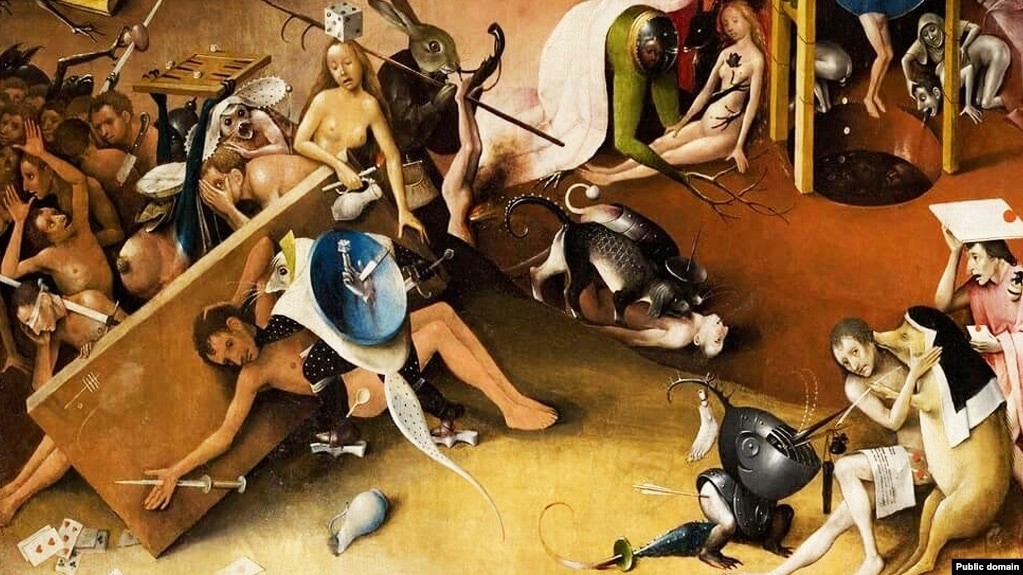The 'Zinc Century' of Russian poetry
Even literature in Moscow has now been enlisted in Russia's exaltation of the "special military operation." With Z-poets dusting off the bellicose tones of World War I or those of the generation of poets who supported the controversial exploits of the Red Army.
Moscow (AsiaNews) - Independent researcher Tatiana Šakhmatova has published a new version of her collection of Z-poems, dedicated to the Russian war of the "Zeta swastika." For this, recalling the "Golden Age" of Russian literature in the 19th century, and the "Silver Age" of the Symbolists in the early 20th century, the current literary version of Russia is titled the "Zinc Century."
Even literature, particularly poetry, has now been enlisted in Russia's exaltation of the "special military operation," the Svo in Ukraine, which now seems to be in the process of being redefined after the aborted Wagner Company uprising. Thus on various sites attempts are being made to collect accounts of this form of "theater of the absurd."
According to the propagandists of Russia at war, also called the "hurrah-patriots," the new militaristic poetry is "a true masterpiece," a new word in world literature.
However, even within the conformity of support for the war, there are different literary genres in this form of propaganda as well; after all, this is nothing new in the landscape of Russian culture, where great writers put themselves at the service of the revolution a century ago, with rather mixed results, from Majakovsky to Gumilev and many others. In the Z-poets' own words, there are the naknižaty ("bookish") and the naknjažaty ("princely," meaning prone to the ruling power).
In Russia, the top echelons of power, from medieval grand dukes to czars to party secretaries, have always sought the exaltation of their exploits through literature, such as the generation of poets who supported the controversial exploits of the Red Army at the time of World War II, recalling Kuprin, Gorodetsky, Severjanin and many others.
Agit-prop writing is characterized by certain specific dimensions, the thematic imposed from above, the illustrative and documentary capacity, the reference to particular episodes and geographical designations related to the events, as well as the moral pathos of the content. There is no room for subtext and diversified interpretations, so the literary form is always very direct.
As has been the case since the time of World War I, on the eve of the revolution, the real and political reasons for the conflicts are ignored even today, in order to orient only on the defense of the interests of Russia and the peoples connected to it and subjugated to it.
Russia is the Zastupnik, the "interceding" country, while the enemy, as Austria-Hungary was called, is the Začinščits, the culprit of the world's murders, and in general, as then in the later war, the Germanic people are the "blood enemies" of all Slavs, a rhetoric taken up literally in Putin's Russia for the "defense" of Ukraine from redivivivified Nazism.
Among the poet-propagandists, however, the superior ones stand out from the mass of slogan repeaters. A researcher on Russian war poetry of World War I, Jurij Zobnin, offers examples of correspondence with authors from a century ago, such as those in the chauvinist collection called "Death to the Germans!" or another entitled "Woe to the occupiers, to the German pigs in the Russian land," in which it was recited that The German pigs have taken a crab / it's hard to clash with the male Russian / From evil they have forgotten the rage / and have buried their heads in the sand... (poem from 1914). The famous Sologub wrote God is with the beginner! / his fist in the iron armor / but he will break the encircling / against our eternal castle (1915).
This kind of exalted verse is now being addressed by Z-propagandists, such as Maria Batutina, who sings We raise our heads again, and they begin to hear us / Soon we will be princes, and they will not be able to hurt us / Back to memory, from us is truth / As in the Great War, the fatherland will win / Back to memory, from us is truth / Wake up granny, shame shall not be (poem titled Rise granny, get dressed granny).
The expression "shame shall not be," net styda, reveals more than any other the fear not only of the poets, but of all Russians in these times: that of sinking into the contempt and ridicule of the whole world. And so they cry out: who is ashamed of the Ukrainian adventure / go to hell with your Bandera!, remembering the much-hated Ukrainian leader collaborator with the Nazis, "resurrected" by the Russian rhetoric of this war.
Image: fragments from Hieronymus Bosch's "Hades"
07/02/2019 17:28







.png)










